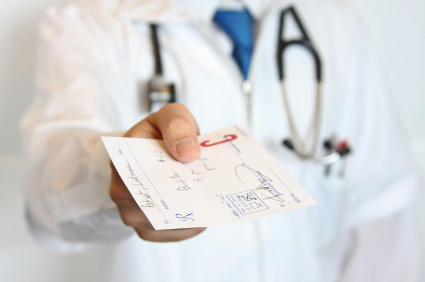Supreme Court Holds that a Patent of the Process of Administering a Drug is Invalid
 Recently in the case of Mayo Collaborative Services v Prometheus Laboratories, Inc., the Supreme Court of the United States found two patents invalid because they claimed subject matter that was not patentable. The patents in this case covered processes that help doctors who use thiopurine drugs to treat patients with autoimmune diseases determine whether a given dosage was too high or too low.
Recently in the case of Mayo Collaborative Services v Prometheus Laboratories, Inc., the Supreme Court of the United States found two patents invalid because they claimed subject matter that was not patentable. The patents in this case covered processes that help doctors who use thiopurine drugs to treat patients with autoimmune diseases determine whether a given dosage was too high or too low.
The Court came to this conclusion by looking to Section 101 of the Patent Act, which defines patentable subject matter. It provides, "whoever invents or discovers any new and useful process, machine, manufacturer, or composition of matter, or any new and useful improvement thereof, may obtain a patent therefore, subject to the conditions and requirements of this title." 35 USC §101.
The Court recognized that it has long been held that §101 of the Patent Act does not allow a person to patent laws of nature, natural phenomenon, and abstract ideas. Diamond v Diehr, 450 US 175, 185 (1981). However, a patent may be issued where the inventor transforms an unpatentable law of nature into a patent of eligible application of that law. See Gottschalk v. Benson, 401 US 63, 71-72 (1972).
In this case, the Court found that the processes at issue simply implemented well known correlations between the levels of thiopurine drugs and autoimmune disease suppression. Accordingly, these correlations were a natural phenomenon that could not be patented. Since the other steps in the claimed processes involved well-understood, routine, conventional activity previously engaged in by researchers, the invention did not transform the unpatentable law of nature into a patentable application of that law. The Court therefore found the patents invalid. It further noted that upholding the patents would risk disproportionally tying up the use of the underlying natural laws and inhibit their use in the making of further discoveries.
If you have any questions concerning the Supreme Court's decision or how patents may assist your practice, please contact Zachary Behler at (517) 371-8323 or by using the form below.
Categories: Patents
Categories
- COVID-19 and Workers' Compensation
- Licensing
- HIPAA
- Providers
- Regulations
- Hospitals
- Long-Term Care
- News & Events
- Employee Benefits
- Patents
- Fraud & Abuse
- Compliance
- Digital Assets
- Criminal
- Employment
- Did you Know?
- Physicians
- News
- Hospice
- HITECH Act
- Pharmacy
- Medicare/Medicaid
- Lawsuit
- Audits
- Regulatory
- Cybersecurity
- Insurance
- Legislative Updates
- Labor Relations
- Privacy
- 6th Circuit Court of Appeals
- Technology
- Contracts
- Tax
- Workers' Compensation
- Billing/Payment
- Medicaid Planning
- Retirement
- Health Insurance Exchange
- Alerts and Updates
- Department of Labor
- Electronic Health Records
- Medicare
- Affordable Care Act
- Health Care Reform
- Accountable Care Organizations
Best Lawyers® 2021
Congratulations to the attorneys of the Health Care practice group at Foster Swift Collins & Smith, PC for their inclusion in the Best Lawyers in America 2021 edition. Firm-wide, 44 lawyers were listed. Best Lawyers lists are compiled based on an exhaustive peer-review evaluation and as lawyers are not required or allowed to pay a fee to be listed; inclusion in Best Lawyers is considered a singular honor. Health Care practice group members listed in Best Lawyers are as follows:
- Jennifer B. Van Regenmorter, Holland
To see the full list of Foster Swift attorneys listed in Best Lawyers 2021, click here.



 Share
Share